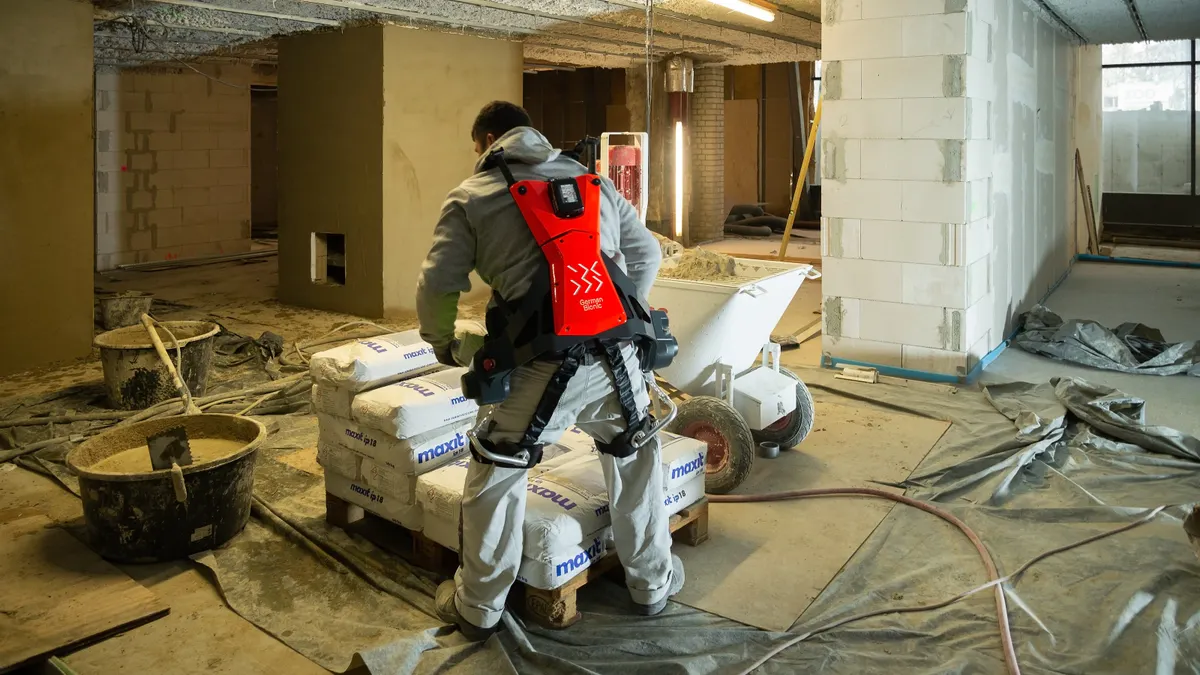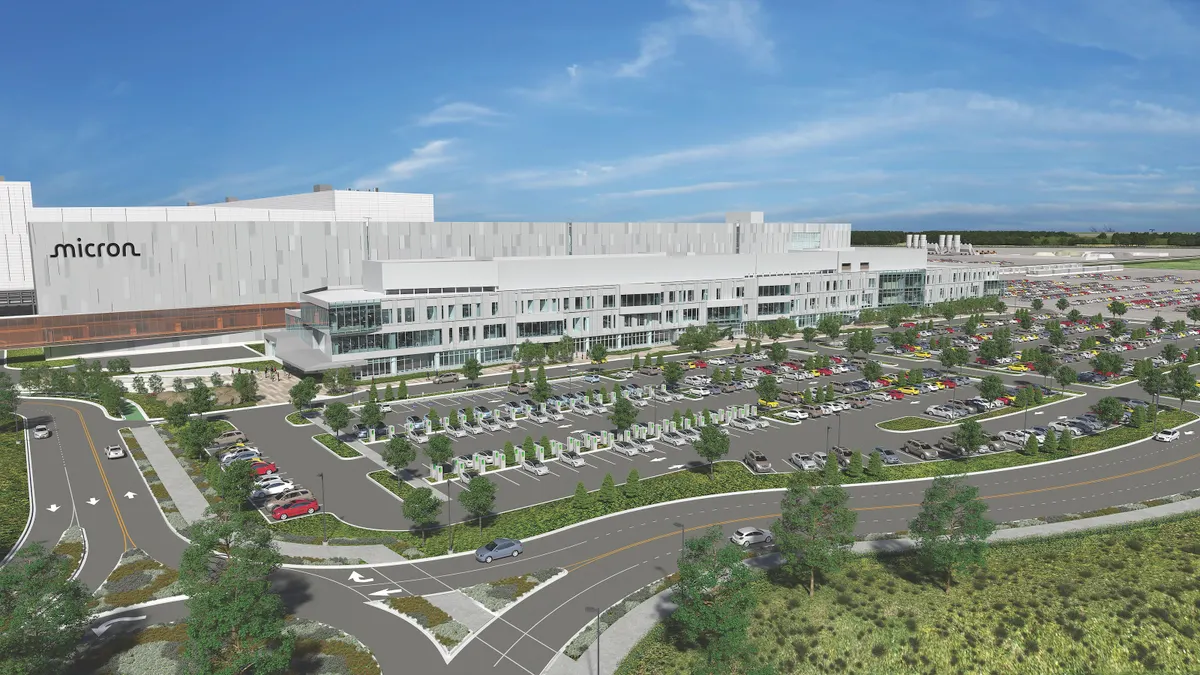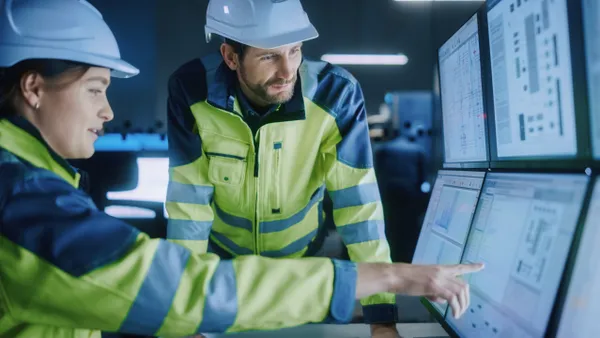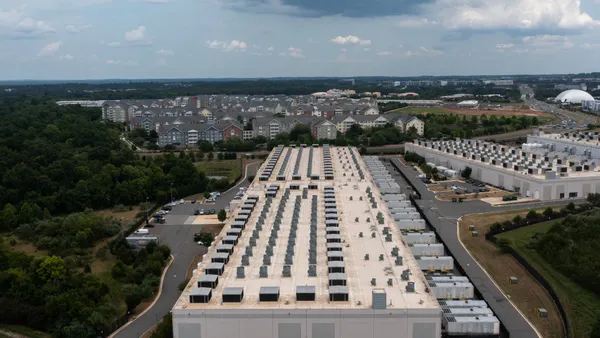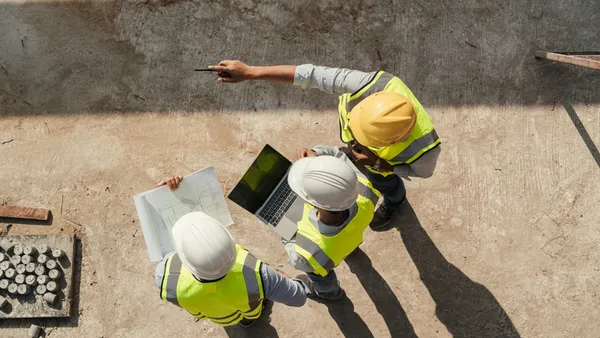Dive Brief:
- German Bionic, a robotics firm based in Augsburg, Germany, has introduced what it called the world’s first exoskeleton augmented by artificial intelligence, the company said in a May 27 news release.
- The exoskeleton, known as Exia, uses billions of real-world motion data points to inform its system on how people work, carry objects, bend and move, according to the news release. For construction workers, Exia provides lifting support and is protected against dust and water, according to German Bionic.
- Exia is also powered by AI-native architecture, or AI as a core component of the system, according to the release. The tech is capable of receiving software updates over-the-air, which means that the exoskeleton will continue to fine-tune itself to both the user and to its data set.
Dive Insight:
Exia’s adaptive lift engine learns each user’s movement and delivers precisely timed support up to 84 lbs, German Bionic said, and a real time digital twin flags users’ movements for safety and high-risk motions. The tech can be controlled through the German Bionic Connect app that users can download to their smartphones.
The tech benefits from German Bionic IO, the company’s cloud analytics platform that offers ergonomic insights, activity monitoring and fleet management through its dashboard.
Use cases for Exia include hauling tools and materials around the jobsite; lifting and removing debris and other heavy materials; and assembling heavy fixtures and structures such as scaffolding, according to the company.
Berlin-based construction company HENZ Bauausführung has worked with German Bionic since 2021, and has deployed its exoskeletons, such as the Cray X, on jobsites, according to a testimonial from the builder. Mustafa Durmaz, managing director for the firm, noticed a decline in sick and injury leave, which he attributed to the exoskeleton’s ability to keep people healthy.
Alongside construction, other target sectors for the device include manufacturing, logistics, airports, retail and healthcare.
Construction exoskeletons aren’t a new invention, and are commercially available from other vendors, including Hilti, Festool and Palladyne AI, formerly Sarcos. These exoskeletons boast similar offerings — lifting assistance, increased safety and workforce attraction.
Exoskeletons can also act in a similar manner to personal protective equipment, according to a blog post from the National Institute of Occupational Safety and Health. The agency noted that the technology could be useful in preventing injuries in the workplace, in addition to their simplicity.
However, historically, cost has been a barrier. One of Hilti’s shoulder exoskeletons, for example, retails at $1,629 for one unit. German Bionic said that its powersuits, like Exia, are typically leased rather than purchased, starting at $399 per workplace per month, depending on the fleet size.



